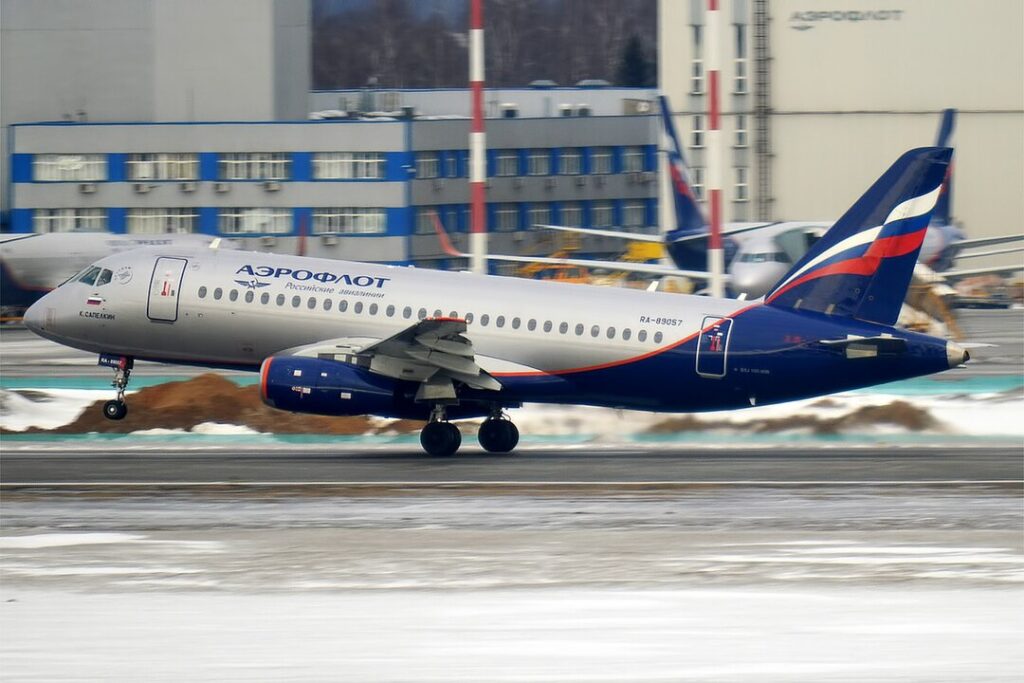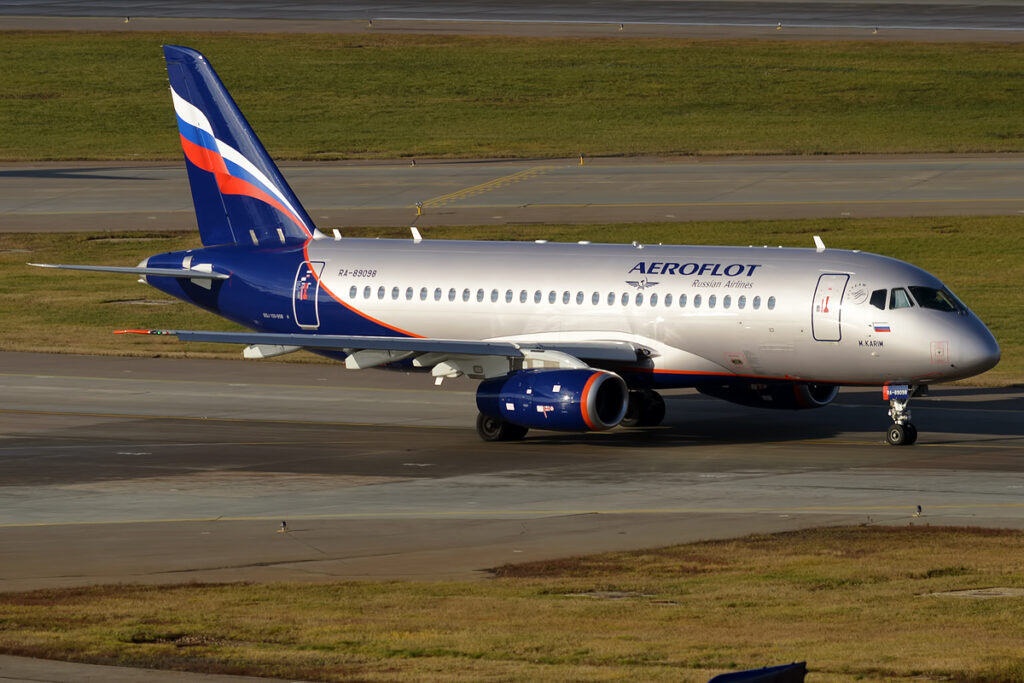MOSCOW- Russian authorities have handed down a six-year prison to the Aeroflot (SU) Sukhoi Superjet 100 captain concerning a tragic landing accident at Moscow Sheremetyevo airport four years ago.
The court’s decision comes after a thorough investigation into the incident, which claimed the lives of 41 people on board.

Aeroflot Captain Sentenced to Prison
The ill-fated flight took off from Moscow bound for Murmansk on May 5, 2019. Shortly after being cleared to climb to 11,000 feet, the aircraft was struck by lightning, prompting the crew’s decision to return to the airport.
Unfortunately, the aircraft experienced a hard impact during the landing, leading to structural damage and fuel leakage. A fire broke out, engulfing the rear section of the twinjet.
By relying on flight and forensic data, investigators meticulously reconstructed the events leading to the accident.
Their analysis contradicted the defendant’s claims of a possible aircraft malfunction, revealing that the aircraft had responded appropriately to the pilot’s control inputs.
The investigation further concluded that air traffic control and the rescue services at Sheremetyevo were unable to prevent the tragic accident.
As a result, the court found the captain, Denis Evdokimov, guilty of violating procedures that led to the aircraft’s fatalities and destruction.
In addition to the prison sentence, Evdokimov has been fined Rb2.5 million ($28,400) and banned from holding the position of a pilot for three years.
The final report by Russia’s air accident investigation agency, the Interstate Aviation Committee, has yet to be published due to delays caused by the COVID-19 pandemic and challenges in obtaining certain system data.
However, preliminary analysis revealed that the aircraft was struck by lightning approximately six minutes into the flight. Further causing the autopilot to disengage.

CC BY-SA 2.0, https://commons.wikimedia.org/w/index.php?curid=78120931
What Happened?
During the subsequent manual landing attempt, the crew faced difficulties establishing radio contact with air traffic control. The flight data recorder indicated that the captain’s control inputs were abrupt and heavy-handed, and the initial approach was abandoned.
Despite a wind shear alarm, the crew continued the descent for a second approach to the runway.
As the aircraft neared touchdown, the captain’s forceful inputs on the sidestick caused fluctuations in pitch. The plane landed with a hard impact, and all three landing-gear assemblies contacted the runway simultaneously.
Due to the aircraft operating in direct law, the automatic spoiler deployment did not occur. Further, the crew failed to extend them manually.
The aircraft bounced upon landing, and the captain’s attempt to engage reverse thrust had no effect as the aircraft was no longer on the ground. Subsequently, manual inputs led to a nose-gear-first impact during the second bounce.
The crew then attempted to initiate a go-around by pushing the thrust levers forward. But this was unsuccessful due to the prior activation of reverse thrust.
Consequently, the aircraft descended once again, landing heavily and causing significant structural damage, including fractures to the fuel tanks.
While the investigation sheds light on the series of events that led to this tragic accident, the sentencing of the Aeroflot pilot serves as a reminder of the importance of adherence to proper procedures and safety protocols in the aviation industry.
Stay tuned with us. Further, follow us on social media for the latest updates.
Join us on Telegram Group for the Latest Aviation Updates. Subsequently, follow us on Google News.

